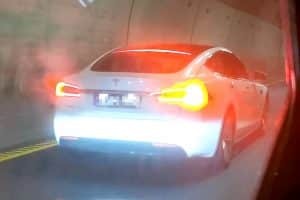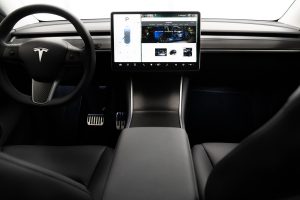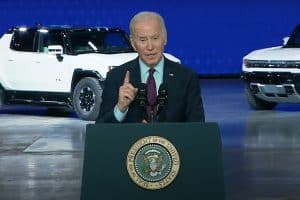As he faced a lawsuit from Tesla shareholders about the SolarCity acquisition in 2016, Elon Musk was firm in the notion that he didn’t have any sway over the company’s board when it approved the deal. Musk highlighted this point on Monday, as he testified in a Delaware courtroom as part of a lawsuit filed by Tesla shareholders, who alleged that both the CEO and the company’s board breached fiduciary duties when they decided to acquire SolarCity.
When SolarCity was acquired by Tesla, Musk was the chair of the company and its largest shareholder. The CEO later noted that the acquisition was a “no brainer,” and it was completed with over 85% of TSLA shareholders voting in favor of the deal. Considering Musk’s ties to SolarCity and the solar installer company’s financial fluctuations at the time, however, critics argued that the deal was essentially a bailout. Musk was also accused of vowing retaliation against any Tesla director who voted against the acquisition.
According to Musk, Tesla’s now-Chairwoman Robyn Denholm was the one who set the final price of the deal, as well as the terms of the SolarCity acquisition. Musk noted that he was kept abreast on the basic progress of the deal, but he was otherwise recused. The CEO also stated that the notion of him controlling Tesla shareholders was implausible. “I don’t think it’s possible to control” big institutional investors like Fidelity and T. Rowe Price,” Musk said.
Things heated up when Musk started responding to questions from Randy Baron, the plaintiff’s lawyer who had already traded barbs with the CEO in the past. From the start, Baron gave Musk “fair warning” that “we have a long way to go,” and that his questioning would probably take all day and well into Tuesday. Musk joked, stating that he could tell the questioning would be long due to the size of Baron’s binder.
As part of his cross-examination, Baron showed a slide showing how far below forecasts was the amount of solar energy Tesla has deployed since its acquisition of SolarCity, especially as the solar provider was one of the US’ most dominant players in the residential solar market before it was integrated with the EV maker. Musk responded that 2017 to 2019 were the “three hardest years of (his) entire career” and that he was working hard to save Tesla at the time. After this, the pandemic shut down government permitting offices, which was a challenge to the US residential solar market. When Baron warned him that things would be really slow if Musk kept elaborating on his answers, the CEO noted that “some of your questions are tricky and deceptive.”
Musk and Baron’s exchanges only got more heated as the day wore on. When Baron asked Musk if he ever “rage fired” anyone or treated people with derision, the CEO noted that he gives “clear and frank feedback which may be construed as derision,” but he did not “rage fire” anyone. The lawyer then played several clips of Musk’s deposition showing his tense exchanges with the CEO. “That was openly derisive not for some benefit of Tesla, but because you didn’t like what was happening, correct?” Baron asked in an apparent attempt at provoking Musk.
Musk later said that he does not respect Baron because he worked for Milberg Weiss, a law firm whose partners were imprisoned for paying kickbacks to expert witnesses and plaintiffs; and Robbins Geller, whose partners also ended up incarcerated. “You were mentored by criminals. Then you continued to be mentored by criminals and that is why I do not respect you… I have great respect for the court, but not for you. I think you are a bad human being,” Musk said, later accusing Baron of being a “professional bully” who used his words to cut. “That’s very sad,” the CEO remarked.
Other loaded exchanges between Musk and Baron happened after the lawyer asked the CEO if he does not like it when people tell him what to do. Musk calmly responded that this was not exactly the case. “In fact, if I’m not mistaken, I view critical feedback as a gift,” Musk stated. This point could be confirmed by Musk’s reception to critical feedback from automotive veteran Sandy Munro, who heavily criticized the Model 3’s design in a teardown. Musk also added that if it were up to him, he would rather just work as an engineer.
“To be honest, I don’t want to be the boss of anything. I won’t want to be CEO. I tried not to be CEO of Tesla, but I had to, or it would die. I rather hate being a boss. I’m an engineer,” Musk said.
Amidst Musk’s exchanges with Baron, however, the CEO’s point was clear. SolarCity, like any aggressive startup in a high-growth industry, had a tendency to have negative cash flow. Musk noted that Amazon was an example of this, and so was Tesla, and yet, both companies are thriving now. Simply put, the CEO argued that SolarCity’s financial strains when it was acquired were not out of the norm, as even Tesla was in the same place at the time, and if needed, the solar company could have just raised capital.
“Daring enterprises burn cash and take risks to achieve something worthwhile, or even great. Tesla was subject to those risks as much as SolarCity was, but that doesn’t mean they weren’t both worthy ventures. So can’t we acknowledge that even my once-stumbling solar efforts are starting to bear fruit?” Musk noted.
The first day of Elon Musk’s SolarCity trial was adjourned until 9:15 a.m. ET on Tuesday. The CEO is expected to continue his cross-examination with the plaintiff’s lawyer.





